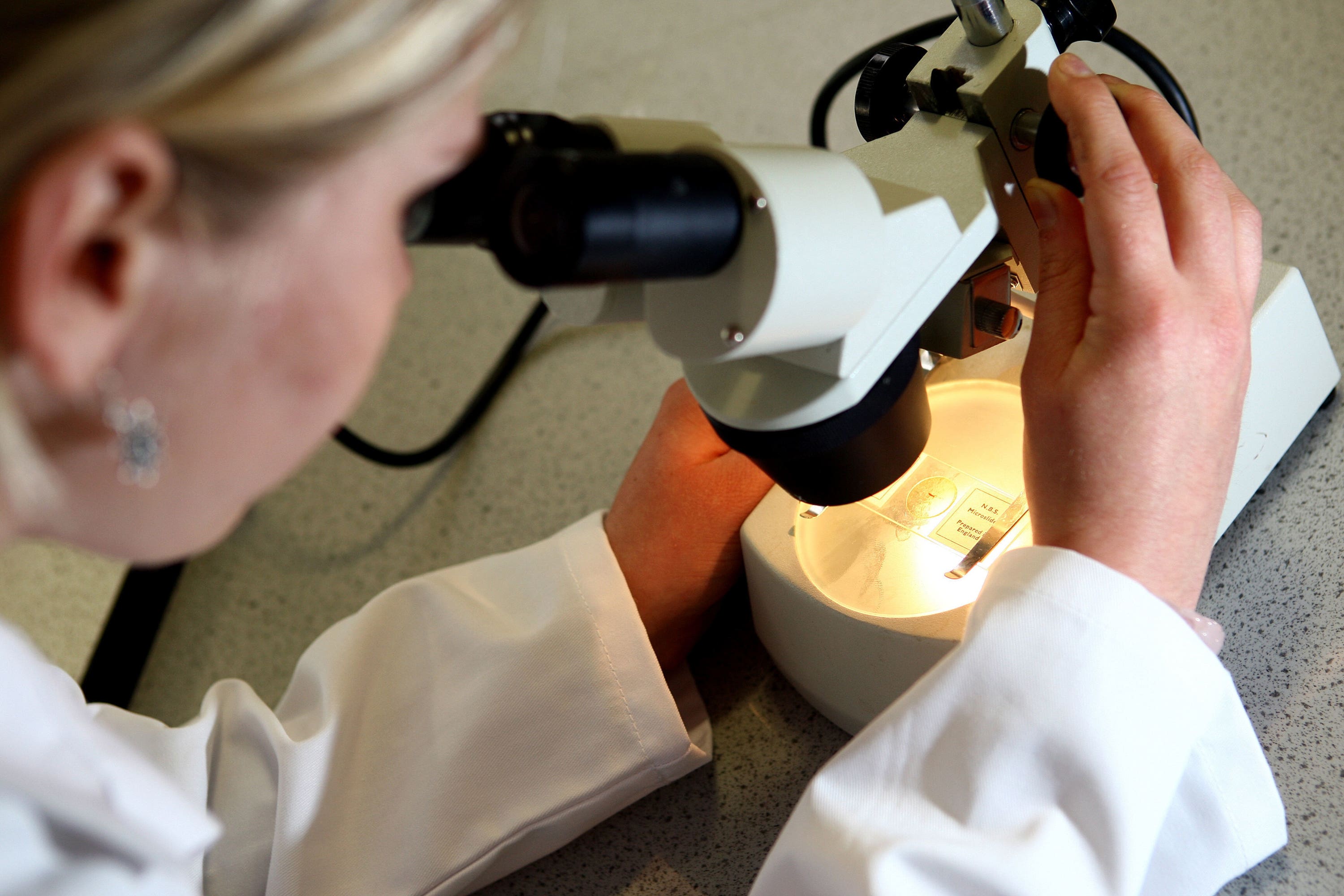Transplant breakthrough could ‘teach’ a patient’s body to accept new organs
Receiving an organ and cell therapy from the same donor could help prevent the need for anti-rejection drugs.

Your support helps us to tell the story
From reproductive rights to climate change to Big Tech, The Independent is on the ground when the story is developing. Whether it's investigating the financials of Elon Musk's pro-Trump PAC or producing our latest documentary, 'The A Word', which shines a light on the American women fighting for reproductive rights, we know how important it is to parse out the facts from the messaging.
At such a critical moment in US history, we need reporters on the ground. Your donation allows us to keep sending journalists to speak to both sides of the story.
The Independent is trusted by Americans across the entire political spectrum. And unlike many other quality news outlets, we choose not to lock Americans out of our reporting and analysis with paywalls. We believe quality journalism should be available to everyone, paid for by those who can afford it.
Your support makes all the difference.A new transplant therapy could potentially help patients avoid the need for life-long anti-rejection drugs, a new study suggests.
Scientists have developed a new technique which involves transplant patients receiving a pioneering therapy made by certain cells which have a role in the body’s immune system.
By receiving both the organ and cells from the same donor, the patients’ immune system appeared less likely to reject the new organ, experts found.
Donor-derived regulatory dendritic cells infusion is a promising candidate adoptive cell therapy for drug minimisation and tolerance induction in solid organ transplantation.
Dendritic cells play an important role in the the body’s immune system by helping to launch a response to potential threats. They also help the immune system tolerate harmless components instead of attacking them.
Using this knowledge, scientists created a donor-derived regulatory dendritic cell therapy for liver transplant patients.
They theorised that these donor-sourced cells could “teach” the recipient’s immune system to tolerate the new organ.
In an early-stage study, 13 patients were given a single infusion of the therapy a week before their transplant. They were compared with 40 liver transplant patients who received usual care – which includes a regimen of anti-rejection (immunosuppressant) drugs.
Immunosuppressants work by dampening down the body’s immune system and when a person has an organ transplant they usually need to take these drugs for life to prevent the body’s immune system from attacking the donated organ.
But the drugs come with their own complications including a higher risk of infection and kidney and heart toxicity.
In the latest study, researchers found that there were no differences between the two groups in organ rejection rates.
They said that the cell therapy appeared to be “well tolerated” by the transplant recipients during the year-long trial.
The academics, led by experts at the University of Pittsburgh School of Medicine in the US, found that the patients who received the donor-derived cell therapy showed a similar drop in “anti-transplant immune responses” compared with those who received standard immunosuppressive drugs.
This suggests that the new treatment could potentially reduce dependence on immunosuppressive drugs, they said.
“(This)… may be conducive to reduced dependence on immunosuppressive drug therapy or immunosuppression withdrawal,” the authors wrote in the journal Science Translational Medicine.
The research is still in its early phases with more work to be done, but the authors said: “Donor-derived regulatory dendritic cells infusion is a promising candidate adoptive cell therapy for drug minimisation and tolerance induction in solid organ transplantation.”
It comes after it emerged that an eight-year-old girl in the UK is able to live a life without immunosuppressant drugs following a kidney transplant.
Aditi Shankar’s immune system was “reprogrammed” after a stem cell transplant and as a result her body accepted a donor kidney as its own.
Because the bone marrow transplant and kidney came from the same donor – Aditi’s mother – the new kidney is working without the need for drugs that stop the body from rejecting a donated organ.
Aditi stopped taking immunosuppressant drugs a month after her surgery at Great Ormond Street Hospital in London.